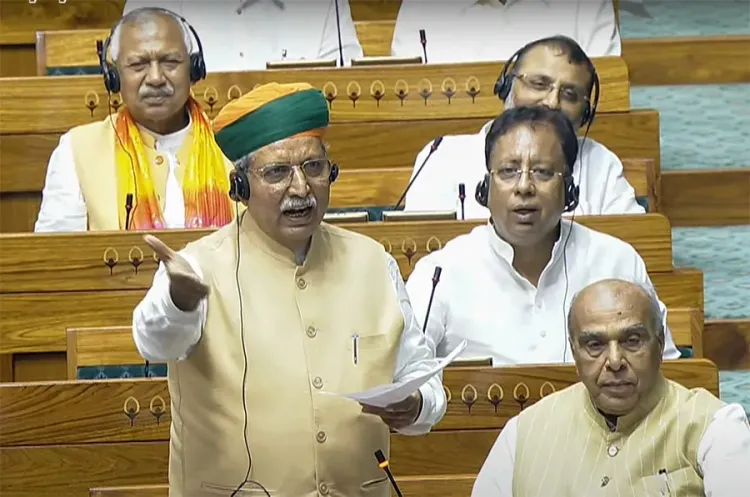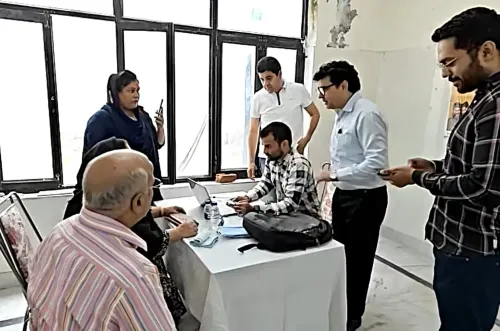How Have 725 Fast Track Special Courts Disposed of 3.34 Lakh Cases since 2019?

Synopsis
Key Takeaways
- 725 Fast Track Special Courts have been established since 2019.
- They have collectively handled 3.34 lakh cases as of June 30, 2023.
- Uttar Pradesh tops the list with 91,459 cases disposed of.
- FTSCs show a much higher disposal rate compared to regular courts.
- The Nirbhaya Fund has significantly contributed to the establishment of these courts.
New Delhi, Aug 8 (NationPress) A total of 725 Fast Track Special Courts (FTSCs), which includes 392 exclusive POCSO (ePOCSO) Courts, have successfully resolved 3.34 lakh cases as of June 30, since their establishment in 2019, as reported to the Lok Sabha on Friday.
The Minister of State (Independent Charge) for Law and Justice, Arjun Ram Meghwal, provided this information in a written statement, highlighting that the government has allocated Rs 1,034.55 crore to States/UTs since the inception of the Nirbhaya Fund to facilitate the effective operation of these courts.
Initially, the distribution of FTSCs across the nation was determined by a guideline of 65 to 165 pending cases per court—meaning one FTSC would be created for every 65 to 165 pending cases. Consequently, only 31 States/UTs qualified to participate in the Scheme, he noted.
According to MoS Meghwal, in terms of cumulative case disposal, Uttar Pradesh leads with 91,459 matters handled.
Following closely are Madhya Pradesh with 32,113 cases and Kerala with 26,202 cases.
In the National Capital, FTSCs have resolved 2,718 cases since their establishment in 2019. Delhi operates 16 FTSCs, including ePOCSO.
Uttar Pradesh boasts the highest number of 218 FTSCs, followed by Madhya Pradesh with 67, Kerala with 55, Bihar with 46, Odisha with 44, Telangana with 36, and Gujarat with 35.
Emphasizing the effectiveness of FTSCs, the MoS stated, "According to feedback from the High Courts, the disposal rate of cases under the Rape and POCSO Acts in Fast Track Special Courts (FTSCs) is notably higher compared to regular courts."
While the average disposal rate for Rape and POCSO Act cases in regular courts stands at 3.26 cases per court monthly, FTSCs achieve an impressive average of 9.51 cases per court per month, indicating a marked improvement in case handling.
Following the Nirbhaya case on December 16, 2012, the government launched a dedicated fund—the Nirbhaya Fund—to finance projects aimed at enhancing women's safety and security.
This fund is a non-lapsable corpus, managed by the Department of Economic Affairs under the Ministry of Finance. The Ministry of Women and Child Development serves as the nodal ministry for appraising and recommending proposals funded by the Nirbhaya Fund and is also tasked with reviewing and monitoring the progress of approved schemes alongside relevant ministries and departments,” he added.
The establishment and operationalization of FTSCs were conducted under the Nirbhaya Fund, with the department having released Rs 1,034.55 crore to States/UTs since its inception to ensure the courts operate efficiently.









